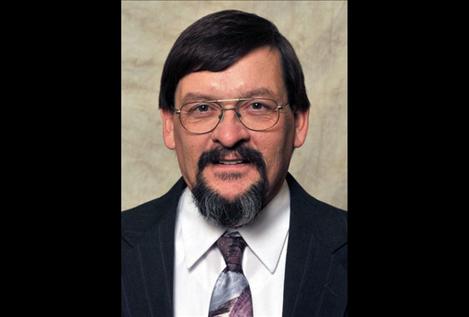Read up for reelection
Hey savvy news reader! Thanks for choosing local.
You are now reading
1 of 3 free articles.
RONAN — It’s election season in the Mission Valley, and the House District 15 seat is up for grabs.
House District 15 covers the southern end of Lake County, circles around the eastern side of the Mission Mountains in a crescent shape and covers the Blackfeet Reservation in the Browning area.
Traditionally, the district seat in Montana’s House of Representatives has been held by a Democrat. Read’s Democratic challenger Forrestina Calf Boss Ribs could not be reached for comment on the race.
Incumbent Joe Read ran for election on the Republican ballot in House District 15 and two years ago and won — the first Republican ever to do so.
If elected to Montana’s House of Representatives, legislators serve two-year terms with the option to sit on several committees between sessions.
“I’m running again because I want to make a difference. I (made a difference) last time,” Read said.
During the last legislative session, Read introduced a “silly” and controversial global warming bill that passed the House but died in a committee in the Senate. It was so controversial it actually earned its own segment on Comedy Central’s “The Colbert Report.”
“What it forced out was that later that spring, a bunch of lawyers got together and started a lawsuit titled, ‘for the children.’ Their aim was to designate air as a natural resource to be regulated and controlled,” he said.
Read said the lawsuit eventually made its way to the U.S. Supreme Court. There it was ruled that the science of global warming is not finalized, so the suit could not be completed until more scientific data was available.
“Since then, there’s not been a single global warming or greenhouse gas lawsuit in the United States. They have to prove global warming scientifically rather than with conjecture,” Read said.
As a returning representative, Read said his job is to develop laws that help citizens culturally, with health and wellbeing. In addition, Read said it is the duty of a legislator, while sitting in various committees, to kill laws that do not help people.
When asked what sets him apart from his opponent, Read said that he was a self-employed, locally born and raised farmer and rancher. However, he also has an extensive history working on large natural disasters and fires in 27 of 50 states.
“I got into politics with the idea that I had such a varied background ... I feel a lot in common with those on the Flathead Reservation. I’ve heard the politics and I’ve heard their views, and I feel that I can represent those views,” he said.
If elected, Read said the three main issues he’d like to pursue would first be the Montana state banking bill. The bill, which Read authored, was the largest bill introduced during the last session. Based on North Dakota’s banking system, the bill would make it possible for Montana to invest in itself rather that outside the state.
“I’m hoping it would separate the Montana state economy from the floundering federal system — give it some isolation. The bill would reform the financial state of Montana and bring it into balance so those who paid for their retirements can actually see that money,” he said.
In addition, Read wants to continue to protect funds designated for use in wildfires and simplify the permitting process while ensuring environmental control and allowing for extraction of big ticket items like timber, oil and coal.
Read said that he believes the EPA has gone far beyond its call and is now hindering economic prospects.
“There was a coal gasification plant that was going to be built outside of Great Falls,” Read said. “Millions of dollars were spent to satisfy permits. When they got done, Montana and the EPA had changed the rules, so they had to start over again from scratch several times.”
Read said the permitting process was so difficult and costly, investors eventually abandoned the project.
“We’re just saying ‘no’ in order to protect the environment,” Read said. “We can protect the environment and still say ‘yes.’ I think you can extract and protect at the same time.”
















